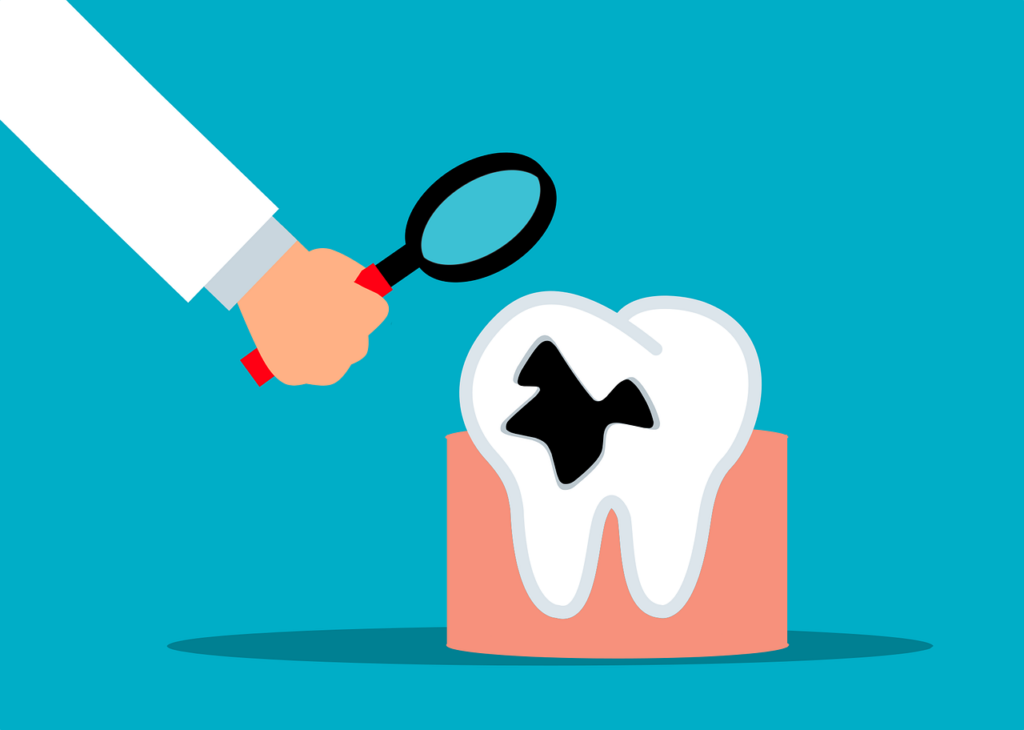Oral Health, Restorative Treatment, Root Canal Therapy


Welcome to the fascinating world of dental health! Have you ever wondered how long it actually takes for a cavity to form? Well, get ready to have your curiosity satisfied as we delve into the intricacies of dental decay.
In this article, we will explore the factors that contribute to the formation of cavities, the timeline of decay progression, and the preventive measures you can take to keep your pearly whites healthy and cavity-free.
Dental decay is a common concern for many individuals, and understanding the process behind it is crucial to maintaining good oral hygiene. So, if you're ready to uncover the secrets of dental decay and gain valuable insights into cavity prevention, let's embark on this enlightening journey together.
Dental health refers to the state of your oral cavity, including your teeth, gums, and surrounding structures. It encompasses everything from brushing and flossing to regular dental visits and a well-balanced diet. Maintaining good dental health is essential for overall well-being
Neglecting dental health can lead to various oral problems, including dental decay, also known as cavities.
A cavity, or dental caries, is a small hole forming in your teeth' hard tissues. It is caused by a combination of factors, including bacteria, acid, and poor oral hygiene.
Cavities can occur in people of all ages and can range in severity from minor surface damage to extensive tooth decay. If left untreated, cavities can cause pain, infection, and even tooth loss.

Cavity formation occurs in several stages, starting with the buildup of plaque on the teeth. Plaque is a sticky film that forms when bacteria in the mouth combine with food particles and saliva.
If plaque is not removed through regular brushing and flossing, it can lead to enamel demineralization. This is the second stage of cavity formation, where the outer layer of the tooth, called enamel, starts to break down due to the acid produced by bacteria.
As enamel demineralization progresses, the decay can reach the dentin, which is the layer beneath the enamel. At this stage, the cavity becomes more noticeable, and you may experience tooth sensitivity or pain.
If the decay continues to advance, it can reach the innermost layer of the tooth, known as the pulp. This is the final stage of cavity formation and is characterized by infection of the pulp, leading to severe pain and potential tooth loss.
The speed at which a cavity forms can vary from person to person and is influenced by several factors. Personal oral hygiene plays a significant role in cavity formation.
Regular brushing and flossing help remove plaque and prevent the accumulation of harmful bacteria. Additionally, dietary habits, particularly the consumption of sugary and acidic foods and beverages, can accelerate the development of cavities.
The use of fluoride can also impact the speed of cavity formation. Fluoride is a mineral that helps strengthen tooth enamel and can slow down the demineralization process. Individuals who have access to fluoridated water or use fluoride toothpaste and mouthwash are generally at a lower risk of developing cavities.
Moreover, genetics and underlying health conditions can contribute to the speed of cavity formation. Some individuals may be genetically predisposed to weaker enamel or have medical conditions that affect their salivary production, making them more susceptible to cavities.
Considering these factors and taking appropriate preventive measures is important to maintain optimal dental health.
Preventing cavities is the key to maintaining a healthy smile. There are several measures you can take to prevent the formation of cavities.
Preventive care is not only essential for cavity prevention but also has long-term benefits for your oral health. By taking proactive measures to maintain good dental hygiene, you can prevent the need for costly and invasive dental treatments in the future.
Regular dental check-ups allow your dentist to identify any early signs of cavities and address them promptly, preventing further damage to your teeth.
Furthermore, practicing preventive care can improve your overall well-being. Poor dental health has been linked to various systemic diseases, including heart disease and diabetes.
By prioritizing oral hygiene and preventing cavities, you can reduce the risk of developing these conditions and promote your general health.
The timeline for cavity formation varies depending on the individual and various factors. On average, a cavity can take several months to years to fully form.
However, the initial stages of cavity formation can occur within weeks if proper oral hygiene is not maintained.
If a cavity is detected, prompt treatment is necessary to prevent further decay and preserve the tooth. The treatment options for cavities depend on the severity of the decay. In some cases, a root canal procedure may be required to remove the infected pulp and save the tooth.
In more advanced cases, extraction of the tooth may be necessary. However, the most common treatment for cavities is the placement of fillings or crowns to restore the tooth's structure and prevent further decay.

Remember, prevention is key, and taking care of your teeth now can save you from more significant problems in the future. If you suspect you have a cavity or need preventive dental care, don't hesitate to reach out to Charlotte Emergency Dental for professional and compassionate dental services.
Take control of your dental health and keep your smile bright and cavity-free!
In conclusion, understanding the process behind cavity formation is crucial to maintaining good dental health. The timeline for cavity formation can vary depending on individual factors, but practicing good oral hygiene, maintaining a balanced diet, and seeking regular dental care can help prevent cavities and preserve your smile.

We have temporarily updated our hours, reflected below.
MONDAY to FRIDAY
9:00am – 7:00pm
SATURDAY to SUNDAY
9:00am – 3:00pm
Save time, print online! Fill out forms online before your first visit to shorten your appointment time with us.